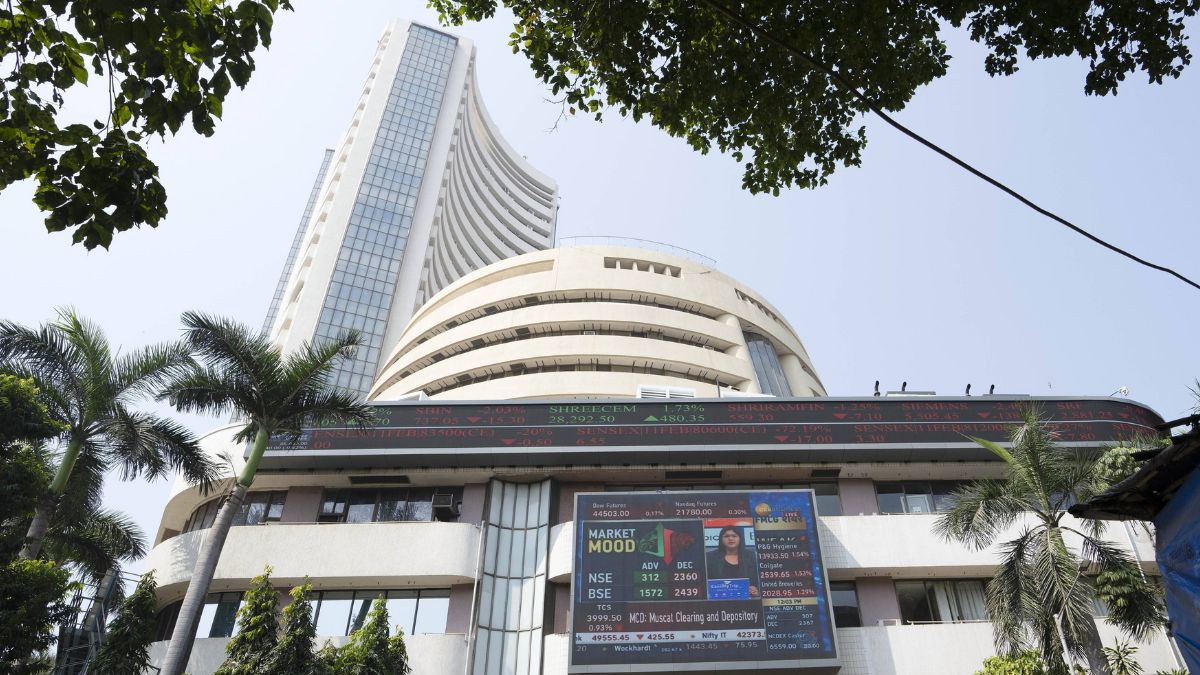Equity markets end six-day winning streak on profit booking; an earnings-led recovery likely in coming quarters
 Representative image | AP
Representative image | AP
India’s benchmark equity indices had risen over the past six sessions. But that streak was broken on Friday. As the country celebrated the auspicious festival of Diwali this week, the BSE Sensex touched a 52-week high of 85,290.06 on Thursday, closing in on its all time high of 85,978.25 that it had touched on September 27, 2024. However, on Friday, markets declined amid a broad-based selling. Profit booking was especially seen in some of the FMCG, banking and tech counters.
The BSE Sensex ended Friday at 84,211.88, down near 345 points, or 0.4 per cent and the NSE Nifty 50 index closed 96 points or 0.4 per cent lower at 25,795.15 level. The mid and smallcap indices also ended lower.
Equity markets have been fairly volatile this year, amid global geopolitical tensions and the uncertainties around the import tariffs imposed by US President Donald Trump. Still, the Sensex has gained a little over 3 per cent over the past one month, amid some euphoria among investors following the Goods and Services Tax revamp that was announced in September, which has boosted festive season demand.
On Friday, profit-booking was seen in several large-cap counters. Hindustan Unilever, which had announced its quarterly earnings on Thursday, closed over 3 per cent lower. Cipla, UltraTech Cement, Adani Ports, Kotak Mahindra Bank, Titan, Axis Bank, Maruti Suzuki, Bajaj Finserv, Tech Mahindra, NTPC and HDFC Bank were among the other major large cap losers on Friday.
“Persistent profit booking in heavyweights after the recent rally, coupled with declines in FMCG majors post-earnings, weighed on sentiment. Additionally, volatility in global tech stocks and uncertainty surrounding upcoming US inflation data further dampened risk appetite,” pointed Ajit Mishra, senior vice-president, research at Religare Broking.
Oil prices have risen earlier this week after US sanctioned Russian oil majors and that also spurred the profit booking in India, considering that the economy had so far reaped the benefits of low crude oil prices this year, according to Vinod Nair, head of research at Geojit Investments.
How do analysts see markets looking ahead?
Amisha Vora, the chairperson and managing director of PL Capital, said the stage appears set for an earnings-led recovery. “Growth momentum remains intact, supported by structural reforms, the rollout of GST 2.0, income-tax relief and an accommodative policy stance that is easing liquidity conditions. Valuations are reasonable, earnings downgrades have largely bottomed out, and domestic inflows continue to demonstrate remarkable strength even as foreign investors remain cautious,” said Vora.
While global headwinds persist, India stood for its macro stability and the coming year could offer investors the opportunity to participate in the next let of compounding, driven by earnings revival and broad-based economic expansion, she added.
Vikas Gupta, the CEO and chief investment strategist at OmniScience Capital also pointed to reasonable valuations at headline-level. Some sectors like banks, power, infrastructure and housing finance companies among others were actually available at a discount to their intrinsic values and the firm is overweight on those. He also expects defence and railways to continue getting large allocations from the government. Furthermore, as wars subside, trade wars reach a settlement and interest rates fall in India and overseas, these will also augur well for the markets, he felt.
Analysts at Motilal Oswal Financial Services are expecting more sustainable double-digit growth in the second half of the current financial year, from a low-single-digit earnings growth. The analysts are expecting Nifty50 earnings to grow 8 per cent in the current financial year (2025-26) and then 16 per cent in 2026-27, compared with just 1 per cent in 2024-25.
'Selective approach' required
While, Nifty valuations are reasonable, midcap and smallcaps trade at slightly premium valuations and therefore one would need to follow a “selective approach” in stock picking, they said.
The broking firm is positive on sectors such as banking and financial services, capital markets, consumption, manufacturing and digital.
Correction in gold
Gold, too, has seen some correction of around 3 per cent this week, after an unprecedented rally that has seen it touch 48 all-time highs over the past year. The precious metal has risen more than 50 per cent in 2025.
“Gold prices remained under pressure as profit booking extended from overbought levels, with renewed optimism around US trade deals with India and potentially China prompting investors to trim positions,” said Jateen Trivedi of LKP Securities.
The ongoing US government shutdown and uncertainty around trade negotiations is likely to keep sentiment cautious, he said. Trivedi expects gold to remain volatile and trade within a range of Rs 1,18,000-1,25,500 per 10 gram.
Business